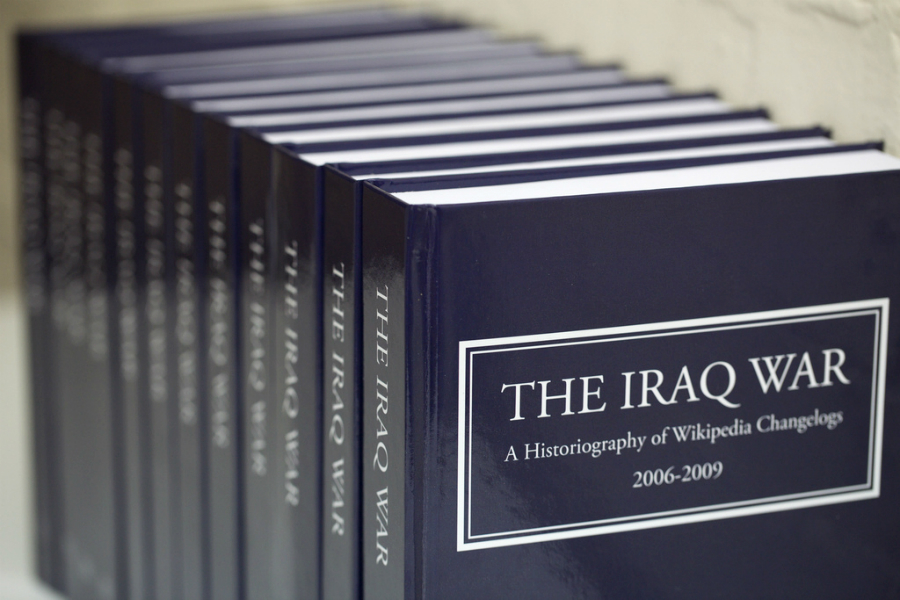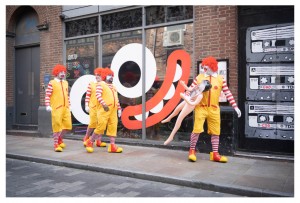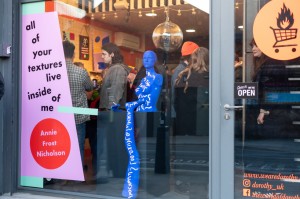Post-Print Publishing? The Literary Digital Revolution

Does the future of publishing lie with eBooks, or are we just not being ambitious enough? Fred Johnson investigates…
eBooks are one of those strange subjects that people tend to have strong and divisive opinions about. You’re probably already familiar with the opposing forces: there’s the forward-facing, early-adopter, kindle-kobo-special-k crowd who love the convenience of having their own personal books-app, and then there’s the sensitive, library-dwelling lit. crowd, who see the transition of their age-worn and tear-stained tomes to data as akin to sacrilege.
Post-Print Publishing?, a Biennial Tuesday Talks event held at the aptly of-the-moment Camp and Furnace this week, managed to address the broader issues presented by this sudden literary digital revolution from a variety of angles, identifying what this means for publishers, and for literature in general.
There is a popular and enduring image of the writer as some kind of borderline-psychotic recluse, a hermit-like figure isolated from the pettiness of the real world and wholly reliant upon imagined concepts for inspiration. Some of the most famous figures in literature have gained recognition in popular culture thanks to this appealing “wise outcast” identity: whether it’s the hollow-eyed caricature of Poe, the emotional femininity of Shelley, or even the quasi-political absurdities of Vonnegut; eccentricity, isolation, and introspection are all characteristics commonly associated with the giants of literature.
James Bridle, a London based writer, publisher, artist, and technologist, entirely rejects this perception of the writing process, and says so in the first talk to grace the evening, quoting from sci-fi writer William Gibson to suggest that writers are entirely submerged in the conceptual and actual information networks they exist within.
From what I understand (though I may have taken something entirely unintended from the fast-moving and omnidirectional lecture), Bridle sought to argue that the commonly held public and indeed academic belief in the immutable permanence and absolute authority of a text is, and always has been, an illusion.
He pointed out that the current digital metamorphosis is really nothing new for literature in terms of content alteration or editing; since words have been recorded, older texts have been adapted for newer mediums, and on a basic level digital books are just another new suit for the same words, that themselves are absolutely dependent upon the social and technological networks that define an age.
This assertion interacted interestingly with one of the main points raised by Swiss musician and web designer Radovan Scasascia, who gave a later talk on his experiences as an eBook publisher. He claimed that, contrary to Bridle’s implication that eBooks are just the next natural evolutionary step, they are in fact a wholly unique medium that can, and should, co-exist alongside print copies, fulfilling a completely different role.
Scasascia proceeded to expand upon the vast potential of eBooks: suggestions of embedded video and audio, along with interactive images and streamlined, hyperlinked content succeeded in convincing this writer at least that books and eBooks perhaps innately exist in separate spheres, serving different purposes, and that you may, in the not-too-distant future, be justified in owning print and electronic versions of the same title.
This realisation could, in theory, quell the raging battle between the Kindle-insurrectionists and the Book-loyalists, acting as a nice reminder that perhaps we can all get along after all.
One of the most intriguing ideas of the evening stemmed from a point rather detached from the subject matter, and concerned itself with the status of literature within the technology-defined age we live in. During his talk, Bridle discussed the rise and importance of “coded spaces”, which are now nigh-on inseparable from the societies we inhabit.
The world we live in has come to rely upon information networks and communications to the point where culture itself has become coded: Twitter brims with bots spouting poetic observations, software picks out haiku from journal articles; technology and literature are slowly merging, and this union has resulted in a new perspective from which to review literature.
Bridle used the metaphor of an airport’s status being defined by its societal meaning, to imply that literature is only authoritative and worthy when involved as part of the pre-existing and varying social networks which are themselves shaped, enhanced, and (in-part) defined by digitalisation and technology.
He emphasised that this is not a new phenomenon; literature has always relied upon the available (and often limited) conceptual information networks of ideas and societal ambitions that underly any civilisation.
The idea that literature is unable to stand confidently alone in this age of hugely thorough communication webs is a disconcerting one, and we are confident that Bridle and Scasascia have tapped into a discussion that is sure to continue.
Fred Johnson
Image courtesy James Bridle: ’The Iraq War: A History of Wikipedia Changelogs’





